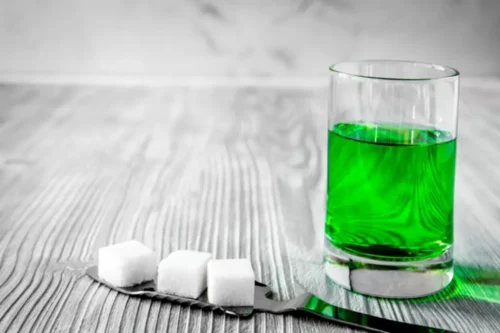
“Many people find it easier to interact and have fun and maybe feel a little less reserved” while drinking, says Raymond Anton, an addiction psychiatrist at the Medical University of South Carolina. Sign up to get tips for living a healthy lifestyle, with ways to fight inflammation and improve cognitive health, plus the latest advances in preventative medicine, Halfway house diet and exercise, pain relief, blood pressure and cholesterol management, and more. Heavy drinking can also cause problems well beyond the health of the drinker — it can damage important relationships. It’s all too common that problem drinking disrupts bonds with a spouse, family members, friends, coworkers, or employers.
- A molecular cancer epidemiologist, she is concerned with alcohol as a carcinogen.
- The trillions of microbes in your colon and large and small intestines are critical to proper digestion.
- These different layers of interaction make validation of the mechanisms by which alcohol affects immune function challenging.
Your Brain on Booze
“Whether you’re drinking 10 drinks a week or five drinks a week, cut that in half to start,” she says. Tawakol encourages his patients to think holistically about their behavior and risks. “For example, if you are drinking, consider the other things that you can do to counterbalance that risk, like exercise, sleeping better and eating better,” he says. We don’t have enough data to know what a “safe” level of drinking really is, Litton says. And emerging research questions https://ecosoberhouse.com/ whether even a drink a day is safe “when we’re seeing some changes in risk for less than that,” she adds.
We Level Up New Jersey Addiction Treatment

Navigating the world of alcohol with an autoimmune disease might feel like walking through a minefield, but does alcohol suppress immune system it doesn’t have to be a no-go zone. We’ve broken down the effects, risks, and surprisingly, some perks of moderate alcohol consumption. Some alcohols might be better buddies for your immune system than others, and moderation is your best friend.
Your Gut on Booze
- Alcohol misuse—which includes binge drinking and heavy alcohol use—over time increases the risk of alcohol use disorder (AUD).
- The adaptive immune system can be further subdivided into cell-mediated immunity and humoral immunity.
- You already know alcohol is not a health supplement, but what you might not know are the effects of alcohol on your immune function.
- As reviewed by Szabo and Saha, alcohol’s combined effects on both innate and adaptive immunity significantly weaken host defenses, predisposing chronic drinkers to a wide range of health problems, including infections and systemic inflammation.
This means it can enhance the bioavailability of beneficial compounds found in drinks. A small glass of red wine could benefit cardiovascular health due to its antioxidants which fight inflammation. For those looking to minimize their risk further, low-alcohol or alcohol-free options exist. These alternatives keep the social aspect of drinking intact while greatly reducing any potential harm. If you also have hepatitis C (or any other kind of hepatitis), your liver is already working very hard to fight the disease itself and deal with the strong drugs that you may be taking for your hepatitis treatment. During pregnancy, alcohol use increases the risk of fetal alcohol spectrum disorders, which refers to the collective lifelong physical, behavioral, and cognitive impairments that occur due to prenatal alcohol exposure.

Chronic heavy drinking isn’t the only way to damage your liver, often irreparably. Even acute alcohol consumption can overwork your liver and disrupt its finely tuned processes, leading to conditions like alcoholic cirrhosis. The detrimental effects of alcohol on the liver, such as increased inflammation and oxidative stress, can swiftly impact organ health. This onslaught compromises the liver’s ability to filter toxins, regulate blood sugar, and produce essential proteins. In addition to compromising the immune cell function, chronic drinking and binge drinking can damage functions in the lungs, the gut, and the blood-brain barrier. The impact of alcohol abuse on the risk and severity of infection has been demonstrated particularly well for respiratory tract infections.
By maintaining control over consumption levels while keeping informed about safer choices, you can enjoy social moments without compromising your health goals. Ultimately, people must make their own decisions based on their personal risk factors and tolerances, ideally with the help of a trusted health professional. The process creates what’s known as oxidative stress, or an imbalance between different types of molecules that results in inflammation. Drinking, at least in moderation, was once seen as a harmless—or even healthy—indulgence that could strengthen your heart and even lengthen your lifespan. But in many scientific circles, consuming virtually any amount of alcohol is now seen as toxic. Other common recreational drugs, such as cocaine or crystal methamphetamine (“meth,” “speed”), can leave your body dehydrated and exhausted, as well as lead to skin irritation.

Q: Does the risk change in terms of the type of alcohol that is consumed?

This effect supports the argument for moderate consumption of alcohol when dealing with autoimmunity. Vodka, being the purest form of alcohol, has a minimal amount of additives. Gin, on the other hand, is flavored with juniper berries but still remains relatively clean. Both options offer a safer choice for social drinking without the heavy burden on your immune system.
